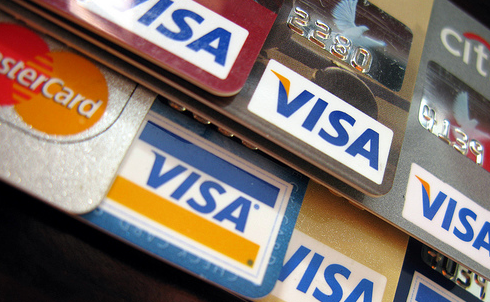MasterCard, Visa Form Industry Group To Address Payment Security Issues
MasterCard announced Friday that the new group — which will include banks, credit unions, acquirers, retailers, point-of-sale device manufactures, and trade industry groups — will first focus on the adoption of EMV (short for “Europay, MasterCard and Visa”) integrated chip technology.
Under the EMV system consumers will use a smartcard embedded with a microchip and provide their PIN to complete a transaction. The chips make reproducing a card difficult for criminals. Even if the credit card information is gathered, without the chip the card is useless.
In early February, the two credit card companies announced they plan to end the current swipe-and-sign method by 2015. American banks have tested the system for international travelers since 2011.
The newly formed group will also address security issues including securing online purchases with tokenization and point-to-point encryption.
Both MasterCard and Visa have given their endorsement to a new mobile payment technology, which would use host card emulation to store payment card information in the cloud. Mobile apps access the information without using the secure element hardware embedded in the phone.
“One of the critical roles we play is to protect consumers and businesses against criminals and fraudsters,” Chris McWilton, president of North American Markets for MasterCard, says in a statement. “Only through industry collaboration and cooperation will we address the real and immediate issue of security and maintain consumer confidence and trust.”
Visa officials say the formation of the group is a public recognition of the important of all parties to work together on payment security.
“The recent high-profile breaches have served as a catalyst for much needed collaboration between the retail and financial services industry on the issue of payment security,” says Ryan McInerney, president, Visa Inc. “As we have long said, no one industry or technology can solve the issue of payment system fraud on its own.”
To McInerney’s last point, some critics of EMV have pointed out that while the embedded chips will make it more difficult to create fake or duplicate cards that could be used in stores, the technology does nothing on its own to prevent credit card thieves from using stolen card information to make fraudulent online purchases.
Friday’s announcement comes just a month after a Senate Judiciary Committee heard testimony from officials with recently hacked retailers Target and Neiman Marcus on how EMV would improve consumer security.
MasterCard and Visa Launch Cross-Industry Effort to Accelerate Payment Security [MasterCard]
Want more consumer news? Visit our parent organization, Consumer Reports, for the latest on scams, recalls, and other consumer issues.


